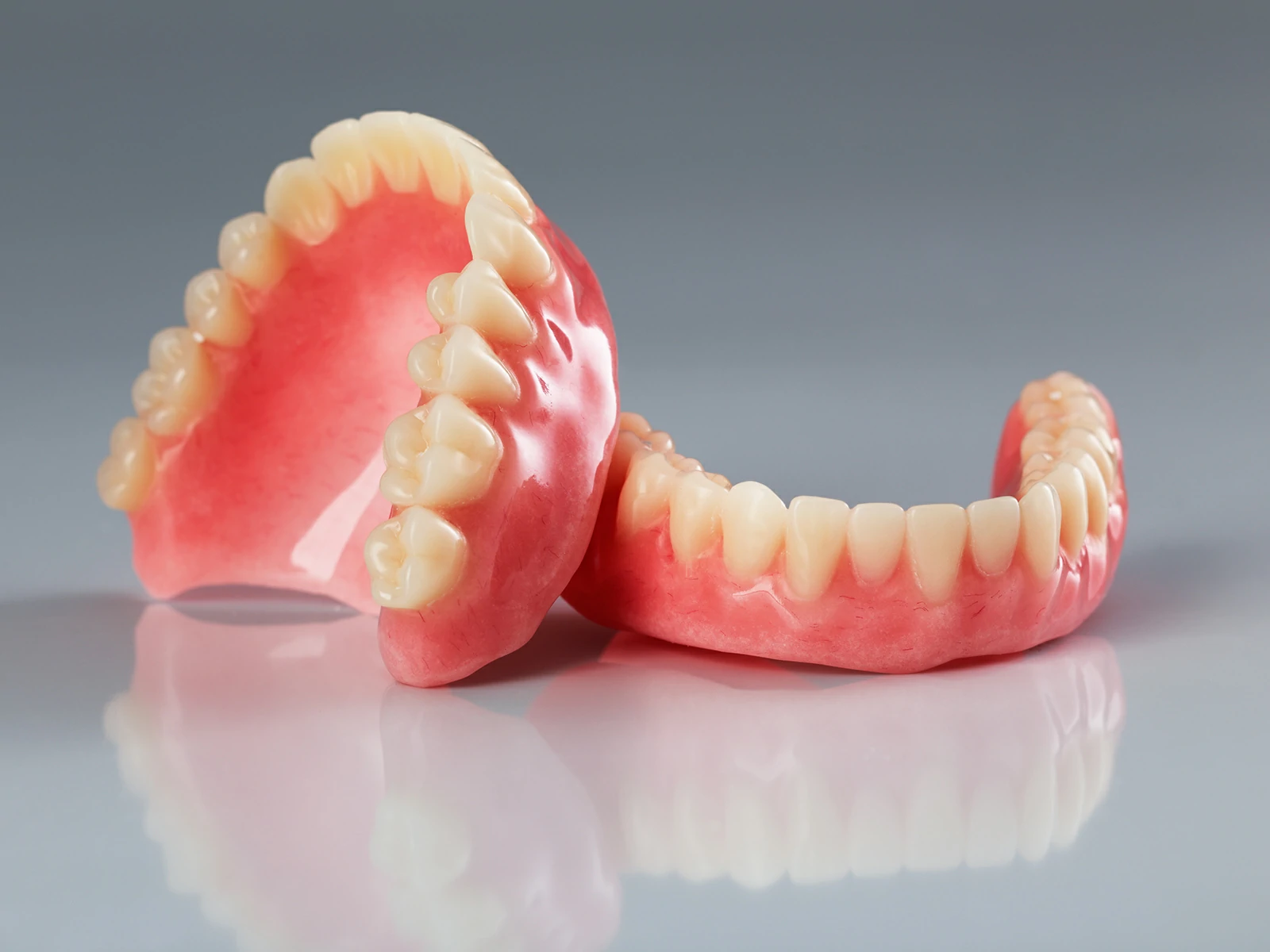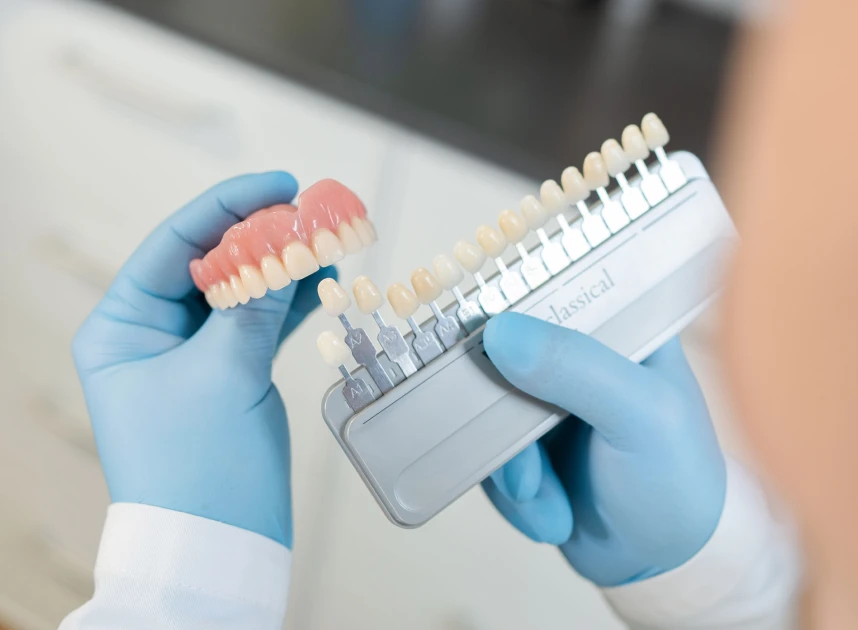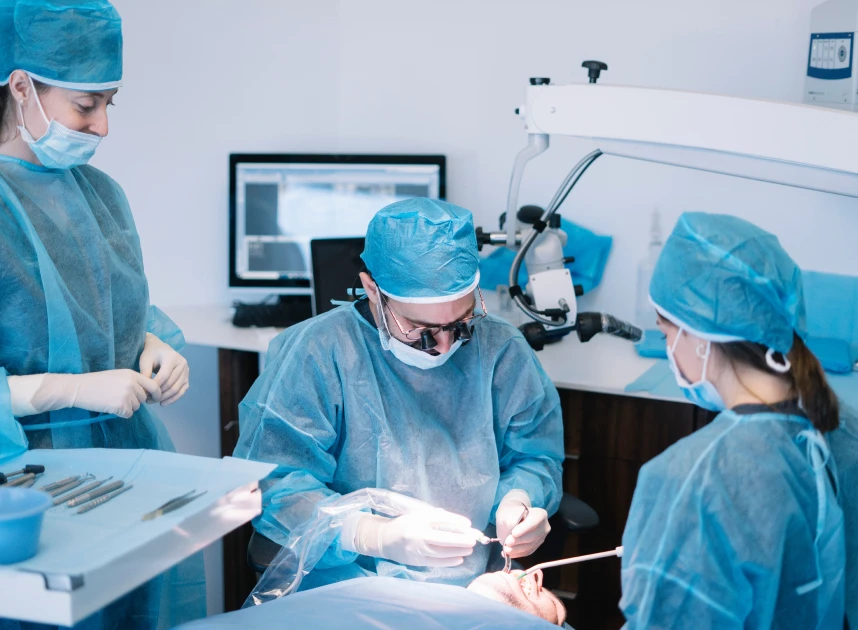100% Guaranteed Treatment
Dental Implants
From €350
100% Guaranteed Treatment
Dental Implants
Dental implants have become a widely accepted treatment option for replacing missing teeth and restoring oral function and aesthetics. This blog post aims to provide dentists with a comprehensive overview of dental implants, encompassing their types, surgical procedures, potential complications, and post-operative care considerations.



Dental implants have become a widely accepted treatment option for replacing missing teeth and restoring oral function and aesthetics. This blog post aims to provide dentists with a comprehensive overview of dental implants, encompassing their types, surgical procedures, potential complications, and post-operative care considerations.



Types of Dental Implants:
Endosseous Implants:
The most common type, placed within the jawbone and made of titanium. Available in various shapes and sizes to suit individual needs.
Subperiosteal Implants:
Less common, placed on top of the jawbone and indicated for specific cases with insufficient jawbone height or density.
Advantages of Dental Implants:
- Provide the closest function and aesthetics to natural teeth.
- Replace missing teeth without damaging adjacent teeth.
- Prevent bone loss and preserve the jawbone.
- Offer a long-lasting and permanent treatment option.
Dental Implant Aftercare:
- Meticulous cleaning and maintenance of the implant site is crucial.
- Regular dental checkups and professional cleanings are necessary.
- Avoiding hard and sticky foods is recommended.
Cleopatra Smile:
Cleopatra Smile is a leading dental clinic in Antalya, Türkiye, offering a wide range of dental services, including dental implants. Our team of experienced dentists is dedicated to providing high-quality dental care to our patients in a comfortable and welcoming environment.
If you are considering dental implants, we invite you to contact Cleopatra Smile for a consultation. We will work with you to develop a personalized treatment plan that meets your individual needs and budget.
Conclusion:
Dental implants offer a life-changing solution for the many negative effects of tooth loss. By understanding the information presented in this blog post, dentists can effectively guide their patients through the implant treatment process and achieve successful outcomes.
Dental Implant Surgery:
Pre-operative Planning:
Involves a thorough evaluation of the patient’s medical and dental history, radiographic imaging, and assessment of jawbone health and volume.
Implant Placement:
Performed under local anesthesia or conscious sedation, the surgeon creates a small incision in the gum tissue and drills a hole in the jawbone for the implant. The implant is then placed, and the gum tissue is sutured closed.
Osseointegration:
A healing period of several months is required for osseointegration, where the jawbone bonds with the implant surface, creating a stable foundation for the restoration.
Abutment Placement:
Once osseointegration is achieved, a second minor surgery is performed to place an abutment on the implant, which acts as a connector between the implant and the final restoration.
Restoration Placement:
The final restoration (crown, bridge, or denture) is attached to the abutment, completing the implant treatment process.
Disadvantages of Dental Implants:
- Require a surgical procedure.
- Can be more expensive than other dental treatments.
- May not be suitable for all patients.
Considerations for Dental Implant Treatment:
- Treatment should be performed by an experienced dentist.
- The patient’s overall health and oral hygiene should be assessed.
- The type and size of the implant should be selected based on the patient’s individual needs.
FAQ
Find the answer To your question
Our Dentists Team
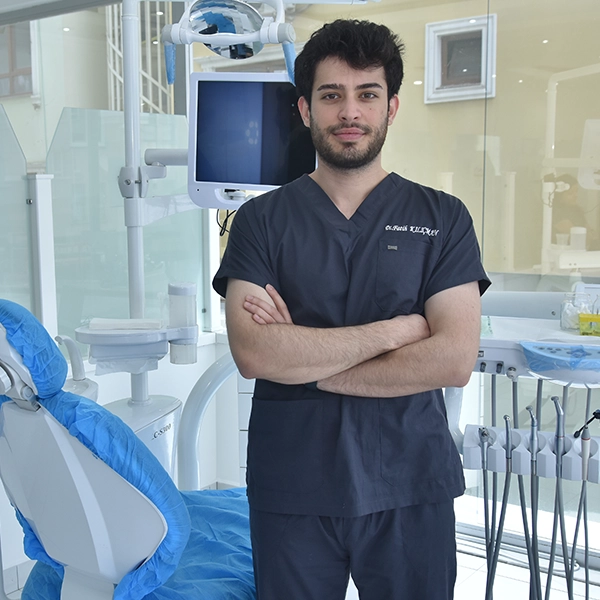


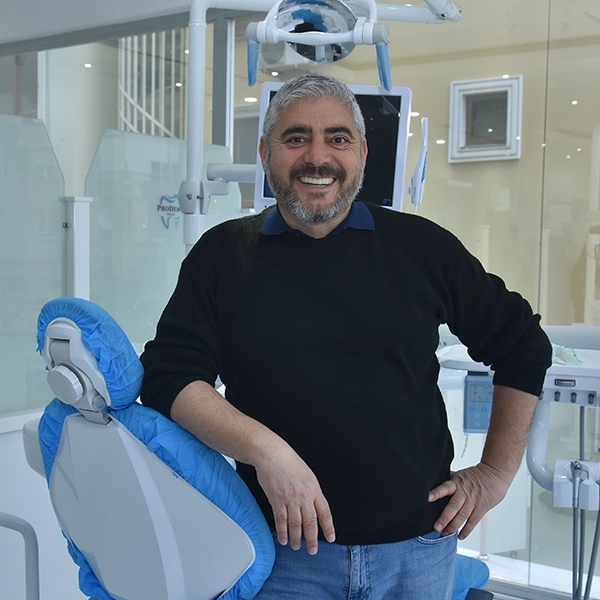
our packages
Our Active Discounted Packages
-
All on 4 SWISS – Metal Porcelain € 3.900
(4 Implants & 12 Crowns) - Per Jaw
-
All on 4 SWISS – Metal Porcelain € 7.800
(8 Implants & 24 Crowns) - Full Mouth
-
All on 6 SWISS - Metal Porcelain € 4.800
(6 Implants & 14 Crowns) - Per Jaw
-
All on 6 SWISS - Metal Porcelain € 9.600
(12 Implants & 28 Crowns) - Full Mouth
-
All on 6 IMPLANCE - Metal Porcelain € 3.600
(6 Implants & 14 Crowns) - Per Jaw
-
All on 6 IMPLANCE - Metal Porcelain € 7.200
(12 Implants & 28 Crowns) - Full Mouth
-
All on 6 STRAUMANN - Metal Porcelain € 7.000
(6 Implants & 14 Crowns) - Per Jaw
-
All on 6 STRAUMANN - Metal Porcelain € 14.000
(12 Implants & 28 Crowns) - Full Mouth
our testimonials
Enhancing Your Smile & Your Confidence











our treatments




